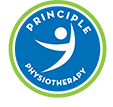
Unlocking the Power of Physiotherapy: Managing Your Shoulder Instability and Dislocations
Hey there! Dealing with shoulder instability or dislocations can be quite a bother, right? It can really put a damper on your everyday activities and make it tough to enjoy sports or physical pursuits. But don’t worry, physiotherapy has got your back (well, shoulder actually)! In this article, we’ll explore some fantastic physiotherapy techniques that can help you manage shoulder instability, regain strength, and get back to doing the things you love.
1. Let’s Figure It Out: Your Initial Assessment and Diagnosis
First things first, let’s get to the bottom of what’s going on with your shoulder. When you visit our skilled physiotherapists, they’ll give your shoulder a thorough evaluation. They’ll check out the range of motion, strength, and stability to see the extent of the issue. Plus, they’ll pinpoint any contributing factors, like muscle imbalances, previous injuries, or postural problems.
2. Hands-On Healing: The Magic of Manual Therapy
Get ready for some hands-on magic! With manual therapy techniques, our physiotherapists will work wonders. They’ll use joint mobilization and soft tissue mobilization to restore proper joint mechanics, increase muscle flexibility, and ease your pain. These techniques will help you move better and speed up the healing process.
3. Power Up Your Shoulder: Strengthening Exercises
Time to pump up those shoulder muscles! Our physiotherapist’s will create a personalized exercise program just for you. The focus will be on strengthening the muscles around your shoulder, like the rotator cuff and scapular stabilizers. This will not only stabilize your shoulder but also improve its overall function.
4. Coordination is Key: Proprioception and Neuromuscular Training
Say hello to better coordination and control! Proprioception is all about knowing where your body is in space. When your shoulder is unstable, this sense can get a bit wonky. But fear not, physiotherapy has got your back again! You’ll do specific exercises that enhance your proprioception and help your shoulder feel steady and strong.
5. Back in the Game: Functional Rehabilitation
Getting back to your favourite activities is the goal, right? Functional rehabilitation will make that happen. Our physiotherapist’s will design a program that mimics the movements and demands of your desired activities. It’ll start slow and safe, gradually building up in intensity. You’ll be back in the game before you know it!
6. Stand Tall: Posture and Body Mechanics
Hey, did you know your posture can affect your shoulder health? It’s true! Physiotherapists will show you how to stand tall and maintain proper body alignment. That way, you’ll reduce unnecessary stress on your shoulder joint. They might also suggest tweaks to your daily activities or workplace setup to avoid strain and prevent future problems.
7. Tackling Pain and Inflammation: Modalities to the Rescue
Nobody likes pain and inflammation, right? Well, physiotherapy has some handy tools to tackle those issues too. You might experience cold or heat therapy, taping and massage. These modalities work like magic to soothe pain, reduce swelling, and help your tissues heal.
8. You’re in the Driver’s Seat: Education and Home Exercise Programs
Knowledge is power! Our physiotherapist’s will educate you about your condition, the importance of sticking to your exercises, and tips for preventing future injuries. They’ll also design a personalized home exercise program for you. Consistency is key, so do those exercises regularly to speed up your recovery.
Conclusion:
You’ve got this! Physiotherapy is your partner in managing shoulder instability and dislocations. With the right techniques—manual therapy, strengthening exercises, proprioception training, functional rehabilitation, posture correction, and pain management—you’ll regain shoulder stability, enhance your range of motion, and get back to living your best life. Just remember to consult a qualified physiotherapist for a tailored treatment plan that suits your unique needs. Stay committed, and soon enough, you’ll be enjoying an active, pain-free lifestyle once again!




